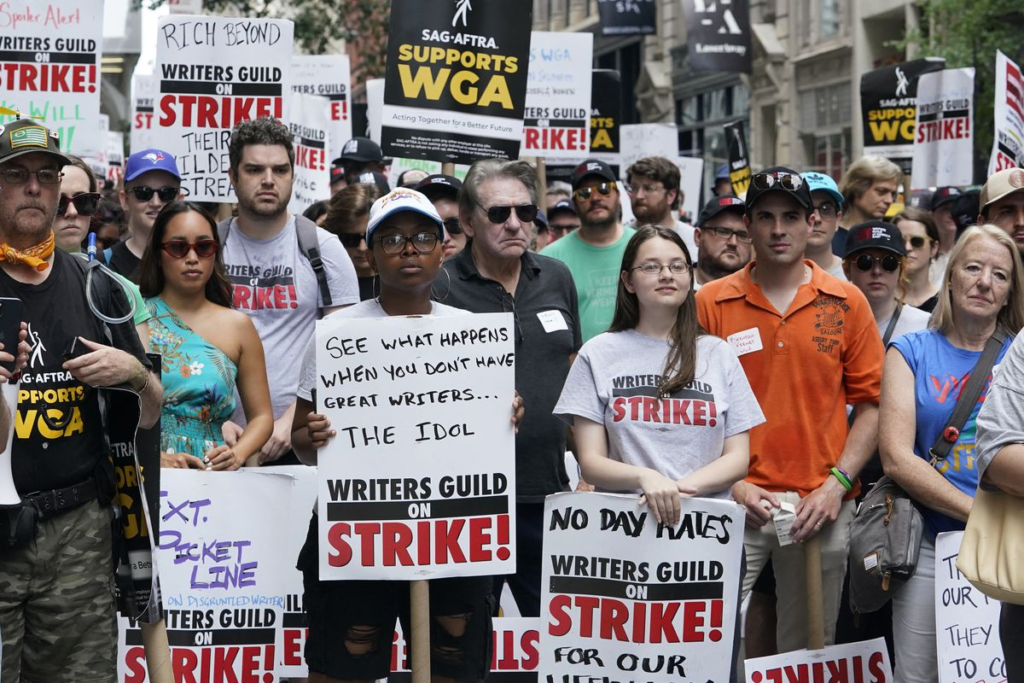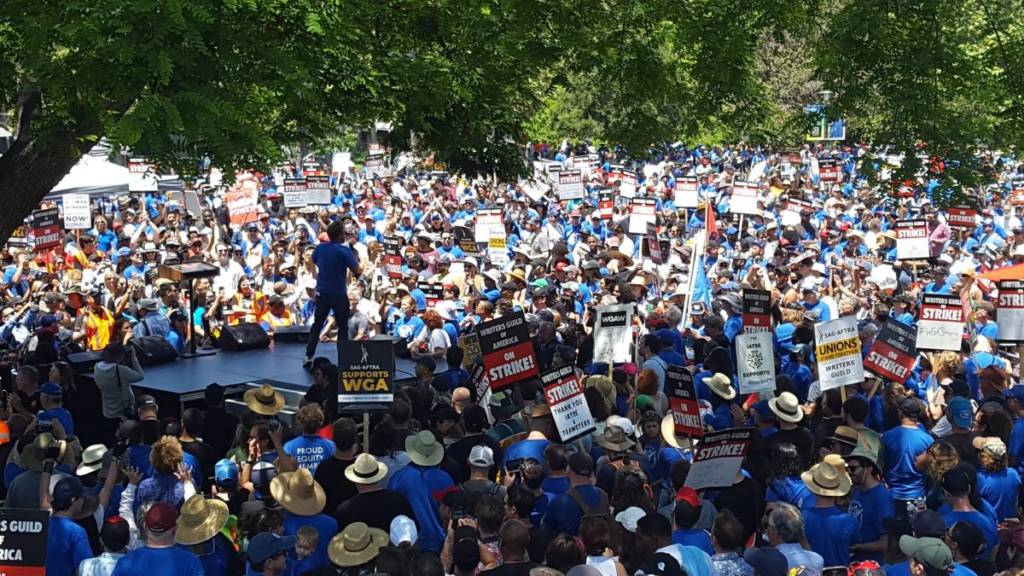Hollywood faces a major upheaval as both actors and screenwriters unite in dual strikes, paralyzing the $134 billion American movie and television business. In a rare occurrence, the actors’ union, SAG-AFTRA, approved a strike after failed negotiations over pay and concerns about the growing influence of streaming services and artificial intelligence.
Joining forces with the striking screenwriters, more than 170,000 workers have brought Hollywood to a standstill, clashing with major studios like Disney, Sony, Netflix, and Amazon.
The Actors’ Strike and the Clash with Studios
The leaders of SAG-AFTRA, representing 160,000 television and movie actors, announced the strike following the breakdown of contract negotiations with studios. The anger over pay discrepancies and apprehensions regarding the domination of streaming services and artificial intelligence propelled the actors to take a stand. Actors and screenwriters, who have not simultaneously gone on strike since 1960, have united on picket lines across American cities where productions are based.
Demands and Concerns of Actors and Screenwriters
Both the actors and screenwriters unions share common demands, primarily focusing on securing fair wages for members, particularly those working on projects for streaming services. Screenwriters are wary of studios employing artificial intelligence to generate scripts, while actors express concerns about the use of technology to replicate their likeness without compensation or approval.
Studio Response and Industry Impact

The Alliance of Motion Picture and Television Producers, representing Hollywood companies, expressed disappointment over the strikes, citing their efforts to offer improved contracts amidst a challenging time for the industry due to streaming disruptions and the pandemic.
The studios warn of financial hardships for those dependent on the industry and emphasize the historic contract improvements they proposed. Studio executives grapple with the unexpected resolve of the actors’ union and the uncharacteristic double strike, resulting in a labor war with no modern playbook.
Implications for the Entertainment Industry
The strikes deliver another significant blow to an entertainment industry already grappling with the pandemic’s impact and rapid technological shifts. Plummeting share prices and shrinking profit margins have plagued Hollywood studios, driven by declining viewership for traditional television and box office returns. Layoffs, series cancellations, and cautious ordering of new shows have become common measures to cope with the changing landscape of streaming entertainment and appease investors.
Unforeseen Challenges and Future Negotiations
As the strikes unfold, industry stakeholders grapple with the uncertainties they present. Questions arise regarding potential demands for simultaneous negotiations between actors and writers, and the Directors Guild of America, which recently ratified a contract, is excluded from the current strikes. The prolonged strikes could lead to further delays in the release of blockbuster films, ultimately affecting viewers and the summer box office.

With the Hollywood entertainment industry at a standstill, the dual strikes by actors and screenwriters have exposed underlying tensions surrounding fair compensation and the changing landscape of the industry.
As labor disputes continue to disrupt productions and alter release schedules, the future of Hollywood hangs in the balance. The strikes mark a pivotal moment in the ongoing struggle between traditional studios and the rise of streaming platforms, compounded by the transformative impact of technology on the creative process.
